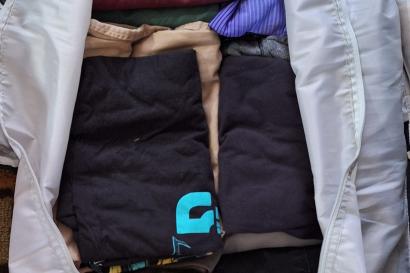
IES Abroad Beijing Library, 12pm. Everyone is ready to get to the train station and travel for 18 hours in the hard sleeper till we reach the city of Zhongwei, Ningxia province, North-West of China. Time goes by quickly in such train. You can read a book, look at the ever-changing Inner Mongolia landscapes, listen to music, make Chinese friends, play cards, eat ramen, and of course, sleep. It felt much more comfortable than coming here by plane. I like trains. I like how they move, the sounds they make, the warmth of the smoke in the platform. I guess I’m a nostalgic.
On our first day, after checking in at the hotel (a luxurious palace in my eyes in comparison with the train hard mattress), we set forth to Shapotou, one of the multiples desert in North-West China, located along the Yellow River. I loved doing zip-lining there and sailing sheep skin boats with friendly sailors who sang traditional Chinese songs for us.
Also in Zhongwei, we visited Gao Miao, or the High Temple, a Buddhist Temple in which, ironically, one can find Confucian paintings related to filial piety and several other principles to respect and love parents. This is because Gao Miao has hosted Confucian, Buddhist and Taoist ceremonies throughout the years. Totally unexpected, we visited the Eighteen Layers of the Buddhist Hell in Gao Miao. After it was destroyed during the Cultural Revolution years, the 十八层地狱 shibacengdiyu was rebuilt. It displays a series of horrible creatures in the form of statues covered in fluorescent colors and equipped with speakers emitting moans and desperate screams for being trapped in hell. One can witness the awful things that can happen to you in hell, the tortures one can suffer. Later on in the afternoon we visited Sikouzi, where we climbed the water-carved mountains due to erosion and had lunch at the top of it. This place also had a beautiful outdoor reclining Buddha. It was a place that transmitted tranquility and serenity; I really liked it.
We lived with local families in Ningxia’s countryside on our third and fourth days, but I’ll talk about my experience over there in my next post. So far, I can say it was my favorite part.
Ningxia is home to numerous Chinese Muslims; over 90% of the total population belongs to the hui ethnic minority or nationality. We visited several mosques, all of them different from each other. From old Chinese Ming architecture-influenced temples in, for example, Tongxin city, to modern Islamic style mosques. The landscape was a combination of cornfields, dry prairies, red bricks houses and mosques. At times, it seemed I was not in China anymore, but in some other Middle-East country. It was definitely surprising...
We visited very beautiful temples, and in the time in between, I fell I discovered a little bit of myself; I was fascinated by the cultural variety China has. And people are OK with it, they respect each other, welcome everyone who's willing to experience their culture. If there is something I really liked about this trip was the opportunity to tie human relationships with others we were given. I might forget the name of that temple, or the construction year of that other mosque, but I won't forget the faces, the feelings that those people brought up to me. The nice shared moments, their kindness.
On our last day, by the way, we also had the opportunity to visit the Beifang University of Nationalities, in Yinchuan, capital city of Ningxia province. It was nice to share experiences with Chinese students and compare our lives at Bei Wai to theirs. The academic atmosphere was for sure different, as I find Bei Wai more energetic for some reason—maybe because we follow Beijing's incredibly fast lifestyle pace—but their campus was more inviting. It was really beautiful; it even had a small lake! We danced together and I was really sad we had to leave. I enjoyed meeting new people, getting out of the IES Abroad routine (we're only 10 students in Beijing!), and being able to practice my Chinese after a while. That day at night we took the train back to Beijing, this time the ride was only 12 hours. I slept like a baby during the whole night. I can't say I wasn't happy to be back in Beijing, I missed it a little bit. But I know I would've also kept traveling and visiting new places. If I could, that's all I'd do sometimes.
Ningxia taught me not to take everything for granted. Ningxia showed me how people can be happy in different ways, it showed me that balance can exist in a heterogeneous context.

Alejandra Sola Ávila
<div>21, from Southern Spain. Translation and Interpreting student in University of Granada.</div>
<div>Now IES Abroad student. Currently living in Beijing and studying in Bei Wai University. </div>
<div>Passionate about books, poetry, cinema, good music and travelling. I believe I was born to travel the world while helping others.</div>
<div> </div>
<div>'Not all who wander are lost'.</div>






